
Local Traditions & Customs in Cairo, Al Qāhirah, Egypt

1. Tahteeb (Stick Fighting)
Tahteeb is an ancient Egyptian martial art involving stick fighting that has been passed down through generations. It is not just a martial art but also a dance and form of storytelling, showing off skills and bravery. Watching a Tahteeb performance can give travelers insight into a cultural tradition that combines art with combat.
- Age Restriction: Suitable for all ages but those interested in martial arts will appreciate it more.
- Event Timing: Performances are not frequently scheduled; check local listings.
- Safety: Ensure to observe from a safe distance as sticks are in motion.

2. Nile Felucca Ride
Feluccas are traditional wooden sailboats that offer a peaceful ride on the Nile River, allowing travelers to experience traditional sailing methods. Unlike motorized boats, feluccas provide a quiet and environmentally friendly way to enjoy the river. The simplicity of this form of travel reflects the pace of life centuries ago in Cairo.
- Availability: High during daylight and early evening.
- Group Size: Best suited for small groups or families.
- Skill Level: No sailing experience required; captains handle navigation.

3. Ramadan Nighttime Festivities
During Ramadan, Cairo becomes vibrant after sunset with people enjoying late-night meals and celebrations. Streets are filled with stalls offering traditional sweets and feasts, making it a great time for cultural immersion. It's a unique festive atmosphere blending spirituality with community.
- Timing: Only available during the month of Ramadan.
- Food: Try traditional delicacies like Kunafa and Qatayef.
- Crowds: Expect large numbers of people, especially around food stalls.
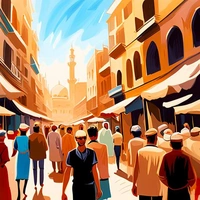
4. Khan El Khalili Market
Known for its bustling atmosphere, this market offers a glimpse into traditional Egyptian trading culture. The labyrinth of alleys is filled with shops selling everything from spices to handmade crafts. Bargaining is not only allowed but expected, making it an integral part of the shopping experience.
- Bargaining: Expected and part of the tradition.
- Operating Hours: Busy during late afternoons and evenings.
- Navigation: Can be confusing; consider using a map.
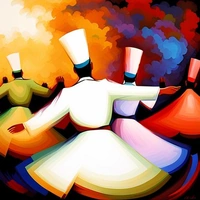
5. Sufi Whirling Dervishes Performances
This religious and cultural dance involves spinning to achieve spiritual trance, reflecting Egypt's rich Sufi tradition. The performers wear vibrant robes and often perform in historic venues, creating a mystical experience for viewers. It emphasizes a peaceful way of connecting with the divine through rhythm and movement.
- Venue: Held in traditional settings like the Al-Ghouri complex.
- Performance Schedule: Check local schedules as shows vary.
- Cultural Respect: Dress modestly as it's a spiritual performance.
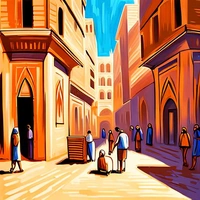
6. Coptic Cairo Visits
A tour of Coptic Cairo provides a unique look at Egypt’s Christian traditions and ancient churches like the Hanging Church. This area is a quiet escape from bustling Cairo and offers insight into the country's religious diversity. It's a journey through history with its collection of Coptic art and icons.
- Dress Code: Modest attire is recommended.
- Photography: Some churches may restrict photography.
- Guide Recommendation: Consider hiring a guide for historical context.

7. Arabic Calligraphy Workshops
Learn the art of Arabic calligraphy, a significant cultural element in Egypt. These workshops teach traditional techniques, offering a hands-on experience in an art form essential to Islamic culture. Travelers can create their own pieces to take home as personalized souvenirs.
- Skill Level: Suitable for beginners.
- Material Costs: Check if included in workshop fees.
- Language: Some knowledge of Arabic can be helpful but not necessary.

8. Traditional Egyptian Coffee Houses (Ahwas)
Visiting an Ahwa for coffee or tea offers a deep dive into social life in Cairo. These places are where locals gather to relax, chat, and play board games like backgammon. Experiencing an Ahwa gives travelers a sense of daily life and community interactions.
- Smoking Policy: Many coffee houses allow smoking.
- Noise Level: Generally bustling with conversation.
- Etiquette: Observe local customs such as tipping.
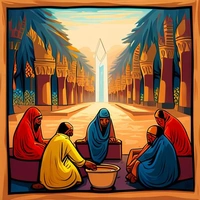
9. Zar Rituals
Attending a Zar ceremony can give insight into traditional healing rituals believed to exorcise evil spirits. This unique music-filled ritual is led by women and uses drums and chants to reach a state of trance. It’s part of Egypt’s cultural heritage despite being less commonly practiced today.
- Cultural Sensitivity: Approach with respect as it's a sacred ritual.
- Photography: Generally not allowed to maintain privacy.
- Language Barrier: Rituals are conducted in Arabic.

10. Giza Pyramid Light Show
This evening spectacle combines lights and sound to tell the history of Egypt's most famous monuments, the Pyramids. It offers a narrative experience that connects travelers with ancient history through modern technology. This tradition adapts ancient stories into an engaging night-time attraction.
- Seating: Consider booking tickets early for the best view.
- Language Options: Shows are available in different languages.
- Weather: Night temperatures can drop; bring a jacket.
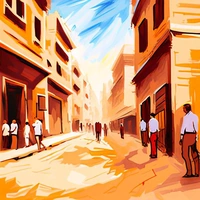
11. Al-Moez Street Stroll
Walking along Al-Moez Street in Islamic Cairo provides a living museum experience of the city's Islamic architecture. The street is lined with restored mosques, madrasas, and buildings that represent various periods of Islamic heritage. It's a testament to Cairo's historical blend of art and architecture.
- Footwear: Wear comfortable shoes for walking on cobblestones.
- Guidance: Guided tours offer more historical insight.
- Local Cuisine: Numerous cafés and eateries to explore.
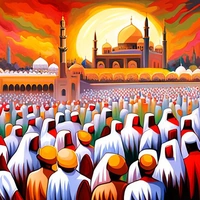
12. Eid al-Fitr Celebrations
Visiting Cairo during Eid offers a chance to experience one of its biggest celebrations marking the end of Ramadan. Expect streets full of joyous gatherings, traditional music, and delicious food. Eid presents a time when both spirituality and community are highly celebrated.
- Shopping: Stores and markets may have special sales.
- Public Transportation: Can be crowded and busy.
- Event Timing: Celebrations last for three days.
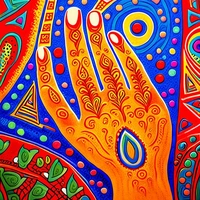
13. Henna Painting
Getting a henna tattoo offers insight into this traditional art form used for celebrations and rites of passage. Temporary and skin-friendly, these intricate designs are a popular custom during weddings and festivals. It's a way to partake in a unique form of personal adornment that reflects Egyptian culture.
- Allergies: Ensure you're not allergic to henna.
- Design Choices: Variety of traditional patterns available.
- Duration: Designs last for about one to two weeks.
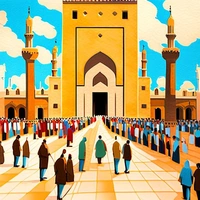
14. Friday Prayers at Al-Azhar Mosque
This historic mosque is not only a religious site but also a center for Islamic learning. Attending Friday prayers offers insight into the religious customs and practices of many Egyptians. It's an opportunity to witness religious devotion and architectural beauty.
- Dress Code: Conservative clothing required.
- Prayer Timings: Plan to arrive early for good seating.
- Photography: Respect restrictions during prayer times.

15. Camels at the Pyramids
The tradition of camel riding near the pyramids harks back to ancient Egyptian travel and trade methods. It offers travelers a unique perspective of the pyramids reminiscent of times gone by. This experience combines historical curiosity with a sense of adventure.
- Booking: Preferable to arrange in advance.
- Safety Measures: Follow guidelines from camel handlers.
- Physical Requirement: Suitable for moderately fit individuals.

16. Fatimid and Mamluk Architecture Tours
Explore the unique architectural styles that flourished during Egypt's Fatimid and Mamluk eras. These tours highlight the distinct ornamental designs that set these periods apart in Cairo’s historical landscape. It's a chance to visually appreciate Cairo's storied past through splendid structures.
- Tour Duration: Usually lasts several hours; plan accordingly.
- Photo Opportunities: Many spots for photography enthusiasts.
- Language Assistance: Available for non-Arabic speakers.

17. Visiting a Nubian Village
In Cairo, visiting a Nubian village will introduce you to unique traditions of Egypt's Nubian people. Known for their vibrant houses and distinct language, these villages offer a different cultural perspective. Such visits showcase Egypt's ethnic diversity extending beyond Arab culture.
- Travel Time: Villages can be a few hours outside Cairo.
- Interaction: Be prepared for warm hospitality.
- Local Crafts: Opportunity to purchase unique handmade items.

18. Egyptian Wedding Traditions
If invited to an Egyptian wedding, travelers get to see a blend of tradition and celebration, featuring music, dancing, and elaborate feasts. Weddings often merge Muslim or Christian customs with local Egyptian flair. Such gatherings highlight family bonds and festive spirits.
- Dress Etiquette: Wear formal or semi-formal attire.
- Gift Etiquette: Bring a gift or money for the couple.
- Duration: Expect long ceremonies and celebrations.

19. Sheesha at Sunset
Smoking sheesha (hookah) is a social tradition in Cairo enjoyed by men and women alike. Participating in this relaxed setting while watching the sun set offers a typical Cairo experience. It’s a leisurely way to bond with locals and fellow travelers.
- Flavor Options: Wide variety of flavors available.
- Health Consideration: Not advised for non-smokers.
- Venue Selection: Choose outdoor cafés for the best atmosphere.
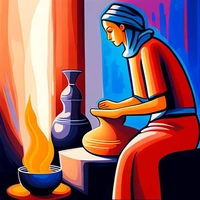
20. Traditional Egyptian Pottery Making
Workshops in Cairo offer experiences in pottery making, reflecting ancient Egyptian craftsmanship. Travelers can learn traditional techniques passed through generations while creating their own pottery items. This hands-on activity highlights the importance of craftsmanship in Egyptian culture.
- Duration: Sessions can take a few hours.
- Skill Level: Beginners welcome; no prior experience needed.
- Takeaway: Participants usually get to keep their creations.
